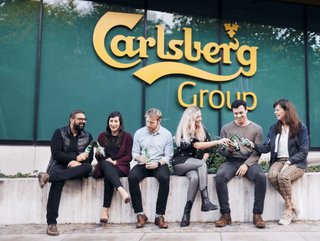Carlsberg: A Transparent Value Chain Helping ESG Goals

Carlsberg is reporting continued progress towards its ESG targets, and it is using key focus areas in procurement and sourcing to help achieve its ambitious goals. Its Together Towards ZERO and Beyond (TTZAB) targets and commitments were launched in August 2022, and were published to address the ESG topics impacting the business, stakeholders and wider supply chain partners.
The enhancement of transparency and accountability across its whole value chain is proving to be a key strategy in approaching the goals of the TTZAB programme. The latest ESG Report 2023 provides additional details on Carlsberg’s value chain carbon emissions and packaging.
“We have made steady year-on-year progress across all eleven focus areas in the programme. This includes taking our first steps in our newer focus areas, namely making another power purchase agreement to source renewable electricity from new assets in Lithuania, establishing projects with NGOs to replenish water in areas of high water risk in Cambodia, China, India, Laos, and putting regeneratively grown barley into our brews in Finland, France and the UK. Partnerships are key to our success as we continue to deliver on our ambitions,” says Simon Boas Hoffmeyer, Senior Director, Sustainability & ESG at Carlsberg Group.
“As we embark on a new year, we are optimistic about our work, yet we remain very aware that we have a lot of work to do towards our targets in 2030 and 2040. We have ambitious targets and commitments, and our journey is complex. Closing the gaps between where we are and where we want to be demands focus and extensive collaboration across the entire value chain,” adds Boas Hoffmeyer.

ZERO carbon footprint
A foundation of the strategy is cutting carbon from the company breweries, but also working with the various tiers of supply within its procurement network. The company is working with its suppliers to address their carbon footprint, and is reporting a 16% reduction in relative carbon emissions from 2015-2022, exceeding its 2022 target.
This is supported by the company reporting a 7% reduction in its own relative emissions since 2022.
ZERO farming footprint
A key area where Carlsberg’s procurement and supply chain network can contribute to the wider company strategy is the improvement in farming and sourcing practices to deliver more sustainably grown materials into its production pipeline.
The company has publicly committed to sourcing 30% of all agricultural raw materials from regenerative practices and sustainable sources globally by 2030, reaching 100% by 2040.
Pilots running in France, UK and Finland produced 6,927 tonnes of regeneratively grown barley for its Kronenbourg 1664, Carlsberg and KOFF brews. This equates to ≈ 0.4% of global raw material volume in 2023, and now company focus will be on scaling these procurement pilots in the coming years to maximise the impact of the programme.
“We cannot reach our targets alone. Partnerships are vital across the value chain, which is why we are collaborating closely with local farmers, traders, maltsters, agronomists and NGOs who provide expertise in the transition to regeneratively grown barley,” says Boas Hoffmeyer.
“Over time this will allow us to offer our consumers and customers lower-carbon beers and contribute to improving the ecosystems we rely on. We will cooperate with all relevant stakeholders to ensure that we as a company and our industry as a whole, strives towards a ZERO Farming Footprint.”
Read more about Carlsberg Group's integrated supply chain strategy and how it brings together key business functions like procurement, planning, logistics and production.
Make sure you check out the latest edition of Procurement Magazine and also sign up to our global conference series - Procurement & Supply Chain LIVE 2024
**************
Procurement Magazine is a BizClik brand
- TotalEnergies: Playing a Key Role in Sustainable ProcurementProcurement Strategy
- ADM's Regenerative Agriculture Procurement StrategySustainable Sourcing
- Coca Cola Mission 2025: Procurement Key to SustainabilitySustainable Sourcing
- Puma’s ‘Forever Better’ Sourcing StrategySustainable Sourcing






